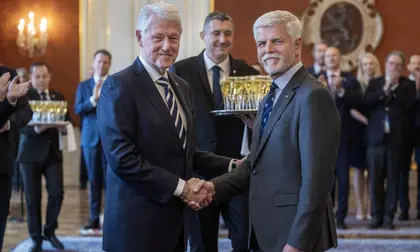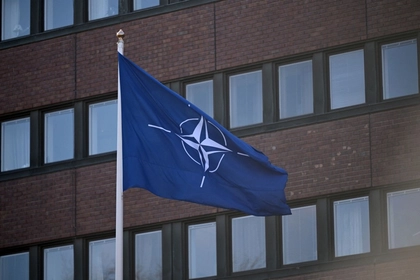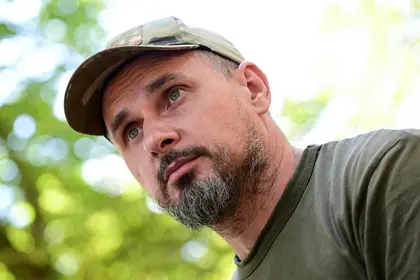The Czech Republic, Poland and Hungary were admitted to Nato a quarter of a century ago. This eastward expansion was a risk, but also a good investment, said Bill Clinton, who was US president at the time, on the occasion of the anniversary. Europe's press also highlights the significance of the decision.
The alliance has survived brain death
JOIN US ON TELEGRAM
Follow our coverage of the war on the @Kyivpost_official.
Novinky.cz comments:
“Russia likes to claim that the West deceived it because it promised that Nato would not expand eastwards. But even Russian President Vladimir Putin had to admit that no such deal existed in writing. ... Today we can be glad that the alliance has survived the brain death that French President Emmanuel Macron spoke of and has regained its ability to act and fulfil its task, which now consists in deterring Russia. Of course, it would be nice if Nato didn't have to exist, but right now it's a good thing it does.”
Otherwise Russia's influence would stretch to the Oder
Nato's eastward expansion has secured freedom and democracy in Central Eastern Europe, Gazeta Wyborcza stresses:
“Nato membership has neither stopped the rise of authoritarianism in Hungary nor prevented Russian influence from flourishing, but it is an anchor that prevents the country from drifting away from the West and binds other states in the region to the West. If the alliance had not expanded 25 years ago, Russia would have Trojan horses not just in Central Europe but would control the entire region. Because Putin would have easily made successive governments subordinate to Russia and established an imperial sphere of influence stretching from Narva to Constanța. Its western border would be the Oder.”

UK Leads Crimean Air Reconnaissance Operations Against Russian Air Defenses
Alliance not European enough
Magyar Nemzet criticises US dominance in the alliance:
“Nato undoubtedly has a deterrent effect, its collective defence doctrine is known to its enemies and allies are not attacked by foreign states. But there is no overlooking the fact that the US dominates the other thirty-one countries in this organisation. And that raises serious doubts about Europe's defence capabilities in these unhappy times. He who pays the piper calls the tune.”
Complicated times ahead
The next 25 years could well be challenging, says Právo:
“The Czech Republic must also take note of the signals coming from Donald Trump to the effect that there will be a reassessment of American alliance commitments under his presidency. Europe's strategic autonomy has so far been just a slogan, not a reality. Complicated times may lie ahead.”
Nato troops could secure peace in Ukraine
In wPolityce, former Polish Defence Minister Jan Parys sees a new task for the alliance even further to the east:
“The problem for Europe today is not just the war in Ukraine but its relationship with an aggressive Russia that rejects normal cooperation. For Poland and Europe, a ceasefire in Ukraine secured by the deployment of allied troops is better than a Ukraine that fights Russia without any prospect of military success. A Ukraine with security guarantees will ensure peace in Europe better than a Ukraine that is fighting against Russia. Of course, Ukraine needs as many weapons as possible right now in order to be able to negotiate from a strong position.”
You can also highlight the text and press Ctrl + Enter






